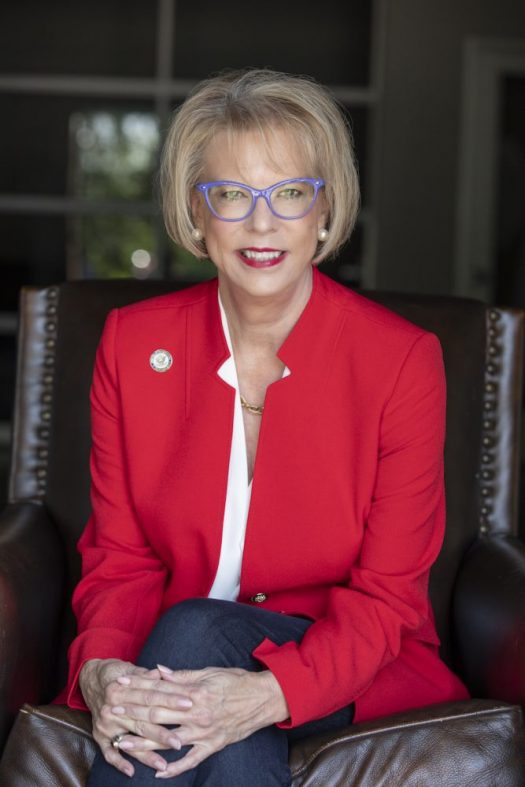
One is a clean technology investor. Two launched their own firms. And another has built her entire career around bringing business to the Bronx.
For all of their diverse backgrounds, these businesswomen have something in common: They’re among the hundreds of women who have decided to run for Congress in 2020. According to recent statistics from the Center for American Women and Politics at Rutgers University, 54 women are running for Senate and 401 are running for House seats, part of an unprecedented wave of women running for office in the Trump era.
And, what’s more, they’re bringing entrepreneurial expertise to their startup campaigns.

The ‘Fixer’ in South Dakota
“It’s all about problem solving,” said Whitney Raver, a Democrat who is trying to unseat Rep. Dusty Johnson, a Republican, in South Dakota.
“You’re constantly having to come up with new solutions, and you can’t just be a problem solver — you have to be a problem finder,” she continued. “You have to be able to know what’s coming and fix it before it gets there.”
Raver, 32, started a digital marketing firm in 2017 called What’s The Word, which helps nonprofits and education outfits build their brands and accelerate growth. Raver has always had an entrepreneurial spirit, perhaps out of necessity — when she was 13, her father became ill and her mother left the family.
She started her first enterprise when she was 10, selling origami to her classmates in order to buy a lawnmower. “I moved my parents out of the projects, so I understand the value of small businesses and business ownership,” she said.
[Related: These Two Activists Are Elevating Black Women in U.S. Politics]

The ‘Green’ Single Mom in New Jersey
Zina Spezakis is another candidate who understands that value, and wants to apply it toward creating green jobs. She is challenging Democratic Rep. Bill Pascrell, Jr. in New Jersey’s 9th District.
The 49-year-old daughter of Greek immigrants who ran a deli in midtown Manhattan, Spezakis previously worked for Chase and Morgan Stanley, and served as Chief Operating Officer of the operations and risk management divisions of Allianz Global Investors.
After reading a United Nations climate change report, the single mom of two decided to devote her attention to renewable energy and sustainable “green” jobs — whether that means building solar panels or retrofitting smart homes.
“I decided I’m not moving the needle fast enough,” she said of her decision to run. “We need expertise not only in technology, but in energy policy, and a voice to talk about it.”
Spezakis is an investor in clean technology startup Ecolectro, where she is also on the board. And while she already has her bachelor’s degree in Economics and Government from Cornell University — and an MBA and a Master’s in International Relations from The University of Chicago — she is pursuing another advanced degree online in Energy Policy and Climate at Johns Hopkins University.

The ‘Voice’ in Oklahoma
Across the political aisle — of the 401 women running for House seats, 264 are Democrat and 137 are Republican — Terry Neese wants to use her voice to push for a free market economy and to lower taxes. She is among four Republicans who are trying to take back the seat in Oklahoma’s 5th District, which was flipped by Democratic Rep. Kendra Horn last year.
“I look at everything through the lens of a business owner, and it’s important we put more in Congress,” said Neese, who started her own staffing agency, Terry Neese Personnel Services, when she was 21 years old. “Business owners like to get things done.”
Now 71, Neese said that if elected, she would champion women- and minority-owned small businesses. As former president of the National Association of Women Business Owners, she helped fuel the passage of H.R. 5050, a 1988 law that allowed female business owners to obtain a small business loan or credit card without requiring a signature from a man.
[Related: 25 Years Since Women Needed a Male Co-Signer]
She also founded the Institute for Economic Empowerment of Women, which runs a program that teaches women in Afghanistan and Rwanda financial literacy. But with a partner running that, and her daughter running her company, Neese is focused full time on the campaign.
“It’s rewarding and obviously very time consuming,” she said. “I want to make sure a number of things are completed that would help more people start and grow small businesses. I’m just not happy with where the country is headed right now.”

The ‘Doer’ in Da Bronx
Marlene Cintron, 68, president of the Bronx Overall Economic Development Corporation, knows how financial security can change lives. She has seen the high unemployment rate take a toll on the New York City borough, especially in the South Bronx, which is often cited as the poorest congressional district in the nation.
When Cintron assumed the position in 2010, she worked quickly to rebrand the borough as a beacon for business. One of her biggest successes to date was convincing online grocery service FreshDirect to move to the Bronx instead of a plant in New Jersey.
That move has meant jobs for about 1,000 Bronxites and counting, she said.
“If we have business in the Bronx, we have people working,” Cintron said. “Small businesses are the largest employer of residents in the City of New York.”
She added that women- and immigrant-owned businesses comprise a large portion of new ventures. The BOEDC is currently financing Claudy’s Gourmet, a shop that sells flan, run by Peruvian baker Claudia Berroa.
“The majority of people in the Bronx are predominantly Hispanic, but more importantly, they are women, single and heads of households,” Cintron said. “So having moms working or manning a business certainly provides that entrepreneurial spirit that is good for the borough.”
Cintron, like the other business-minded women running for office, plans on bringing her industrious skillset to Washington if elected (she is one of seven candidates vying for the seat after Democratic Rep. José Serrano retires).
[Related: Election 2017: U.S. Women Run Races Big and Small]
“I’m not a talker, I’m a doer,” she said.
“I want someone in Congress to look at the big picture and understand that if we bring in small businesses that employ more of our residents, the Bronx will no longer be the poorest congressional district,” she added.
Nearly 2,000 miles away in Custer, S.D., Raver agreed. She said the average business in the Mount Rushmore State stays afloat for only three years, “so there’s something that’s not quite adding up.”
Raver plans to boost the digital economy so that residents don’t have to rely so much on agriculture and brick-and-mortar operations for their income.
When asked how running her campaign is similar to running a business, Raver laughed and said, “Cold-calling.”
“But for me, it’s a necessity,” she added. “Small business is the backbone of the world economy.”

